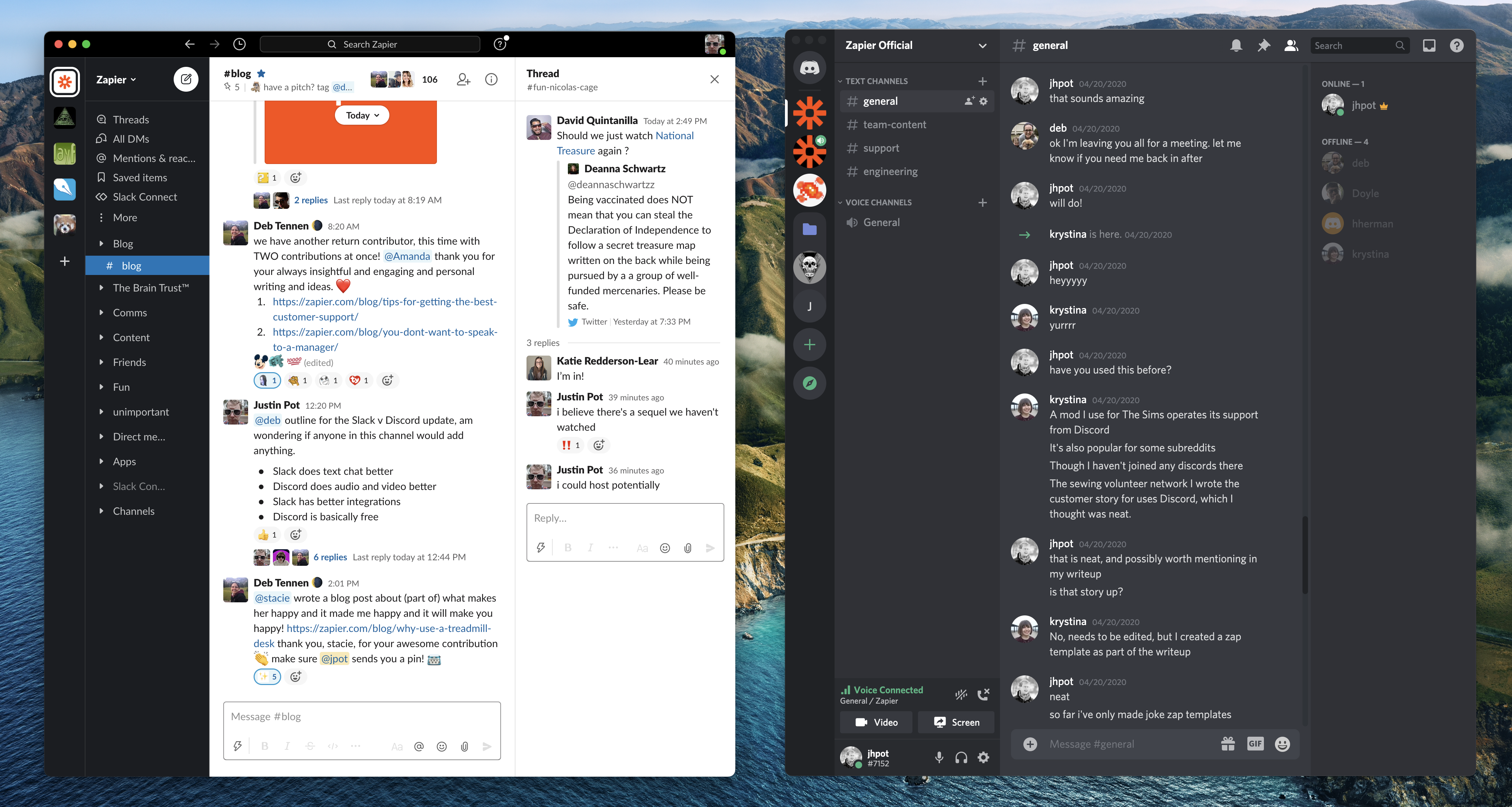

Almost all languages these days let programmers compare, e.g., integers and floats with the >= operator heck, even C allows this. If all of the above is true, why all the hate? When you boil the colorful hyperbole away, the most common complaints about PHP cluster around these root causes:
WHAT IS THE SLACK CLIENT PROGRAMMED IN SOFTWARE
Over the course of a long and complex software project’s life cycle, these productivity gains compound. I claim that PHP’s simpler “think edit reload the page” cycle makes developers more productive. For a typical Python application server, e.g., the debugging cycle will look something like “think edit restart the server send some test requests.” Even if “restart the server” only takes a few seconds of wall-clock time, that takes a big cut of the 15–30 seconds our finite human brains have to hold the most delicate state in place. Many developer productivity languages claim this, but if they do not reset state for each request, and the main event loop shares program-level state with requests, they almost invariably have some startup time.

In practice, this is safer and more resilient to error than the locks-and-shared-state approach that most other general-purpose languages provide.įinally, the fact that PHP programs operate at a request level means that programmer workflow is fast and efficient, and stays fast as the application changes. Asynchronously curl’ing to localhost (or even another web server) provides a shared-nothing, copy-in/copy-out way of exploiting parallelism. But since your program executes in the context of a web server, we have a natural source of concurrency available: web requests. This seems at first like a silly limitation. An individual web request runs in a single PHP thread. Isolating request heaps from one another reduces the cost of most program defects. But PHP shares that weakness with all conceivable environments that allow persistence.

State does reside in places other than the program heap, of course, and it is possible to statefully mess up a database, or memcache, or the filesystem. By starting each request from a known state, we get a kind of organic fault isolation if request t encounters a software defect and fails, this bug does not directly interfere with the execution of subsequent request t+1. Its namespace and globals are uninitialized, except for the standard globals, functions and classes that provide primitive functionality and life support. Every web request starts from a completely blank slate. PHP gets several things very deeply, and uniquely, right.įirst, state. If you last touched PHP in the early ‘aughts, a contemporary PHP codebase might surprise you with traits, closures, and generators. Today, in 2016, it is a feature-rich member of the Mixed-Paradigm Developer Productivity Language ( MPDPL) family, which includes JavaScript, Python, Ruby, and Lua. It has been through several major revisions, each of which brought new mechanisms for wrangling these more complex applications. PHP originally stood for “ Personal Home Page.” It was first released in 1995 by Rasmus Lerdorf, with an aim of supporting small, simple dynamic web applications, like the guestbooks and hit counters that were popular in the web’s early days.įrom PHP’s inception, it has been used for far more complicated projects than its creators anticipated. Its strengths are tightly coupled to the context of request-oriented, server-side execution. Uniquely among modern languages, PHP was born in a web server. I would start a new project in PHP today, with a reservation or two, but zero apologies. On the balance, PHP provides better support for building, changing, and operating a successful project than competing environments. And the options for improving on PHP’s language-level flaws are pretty impressive. PHP-the-language has many flaws, which undoubtedly have slowed these efforts down, but PHP-the-environment has virtues which more than compensate for those flaws. Did Facebook, Wikipedia, WordPress, Etsy, Baidu, Box, and more recently Slack all succeed in spite of using PHP? Would they all have been better off expressing their application in Ruby? Erlang? Haskell? This is not quite a contradiction, but it should make us curious. Most programmers who have only casually used PHP know two things about it: that it is a bad language, which they would never use if given the choice and that some of the most extraordinarily successful projects in history use it. Why did we choose to build a new project in this language? Should you? Slack uses PHP for most of its server-side application logic, which is an unusual choice these days.



 0 kommentar(er)
0 kommentar(er)
